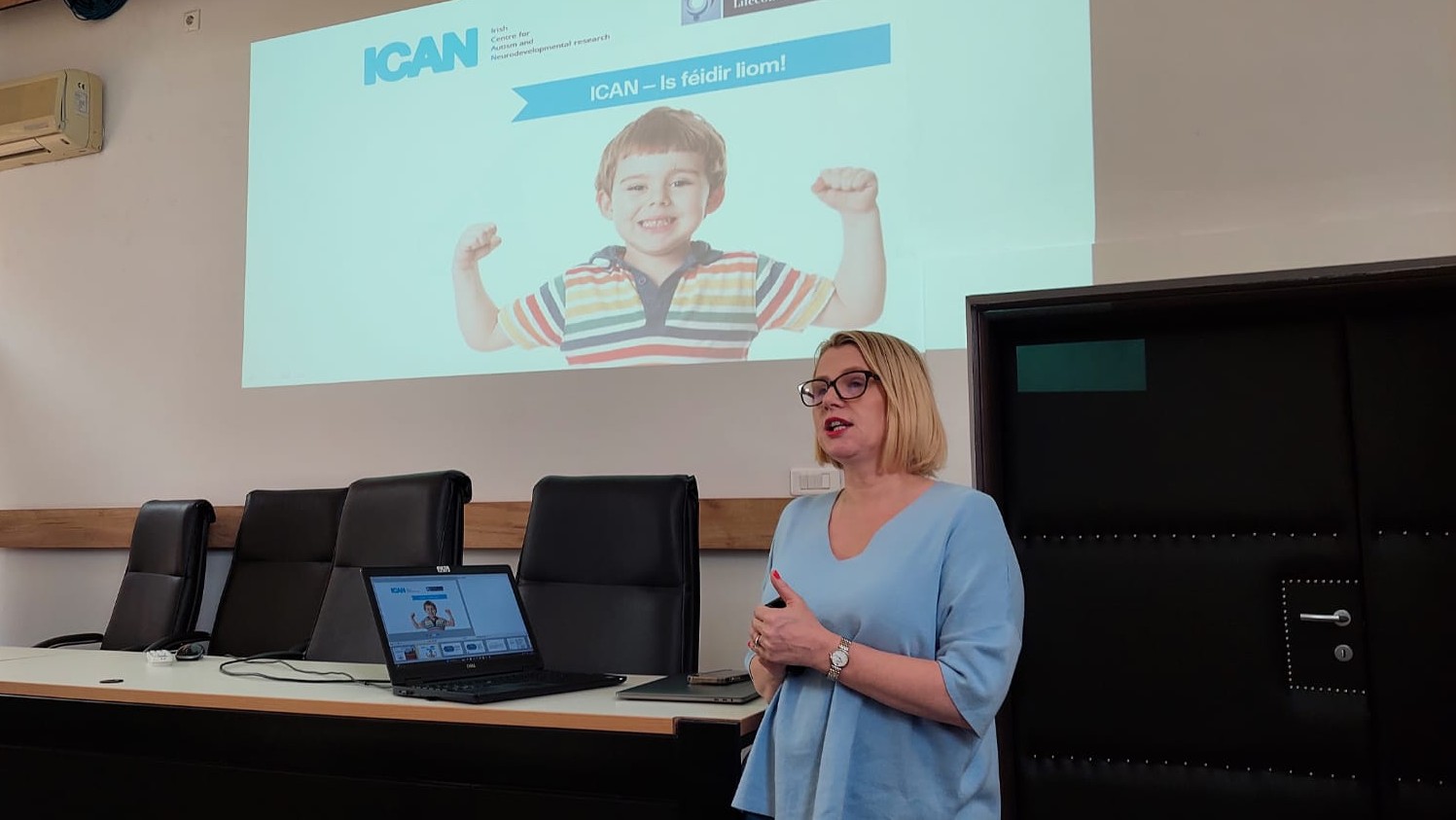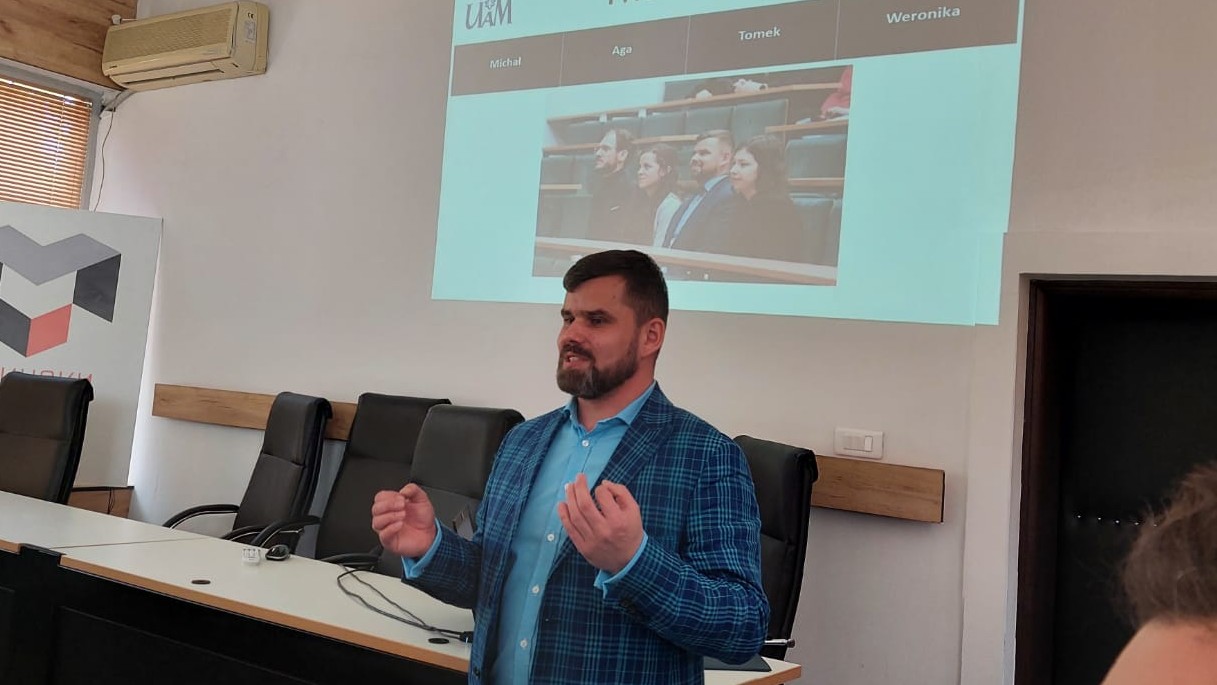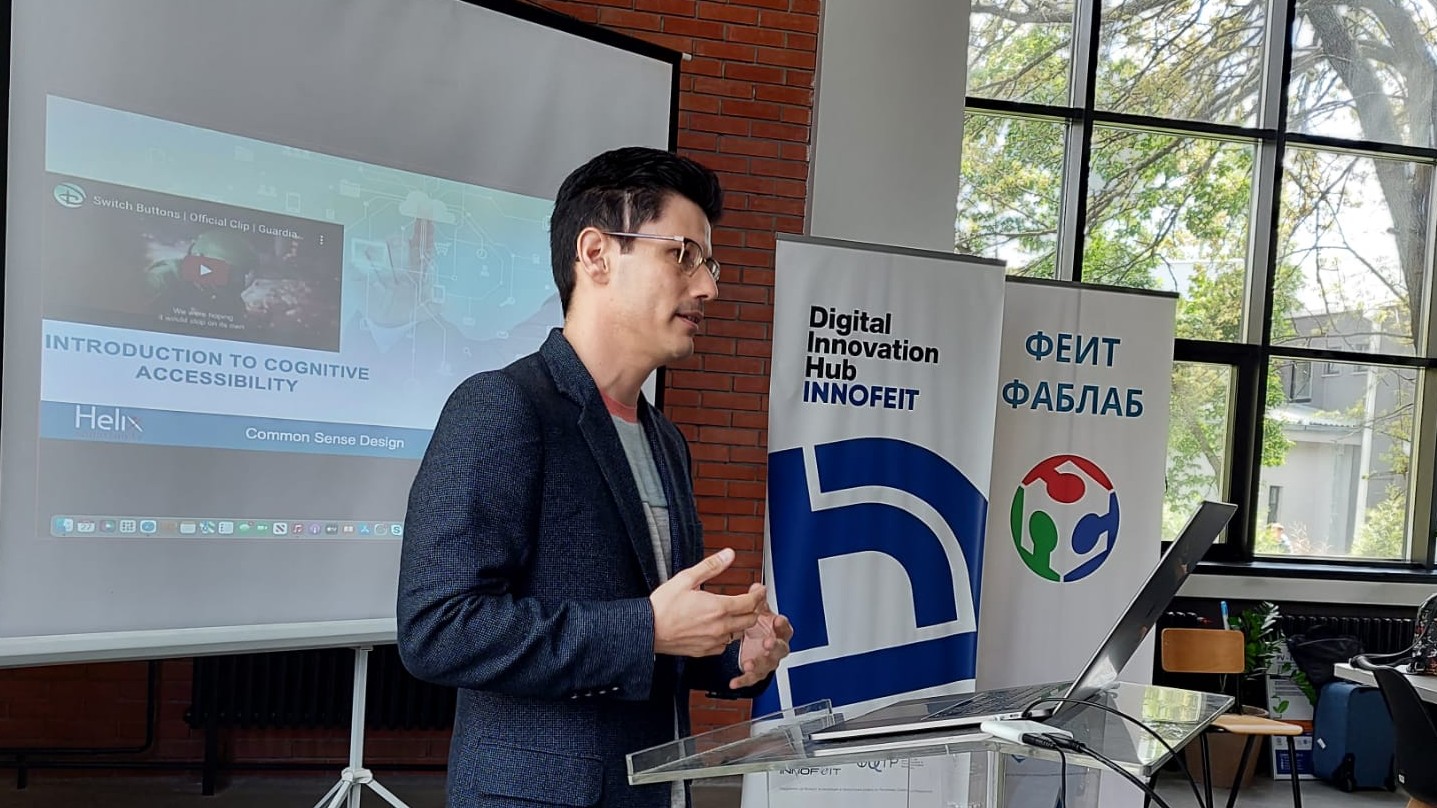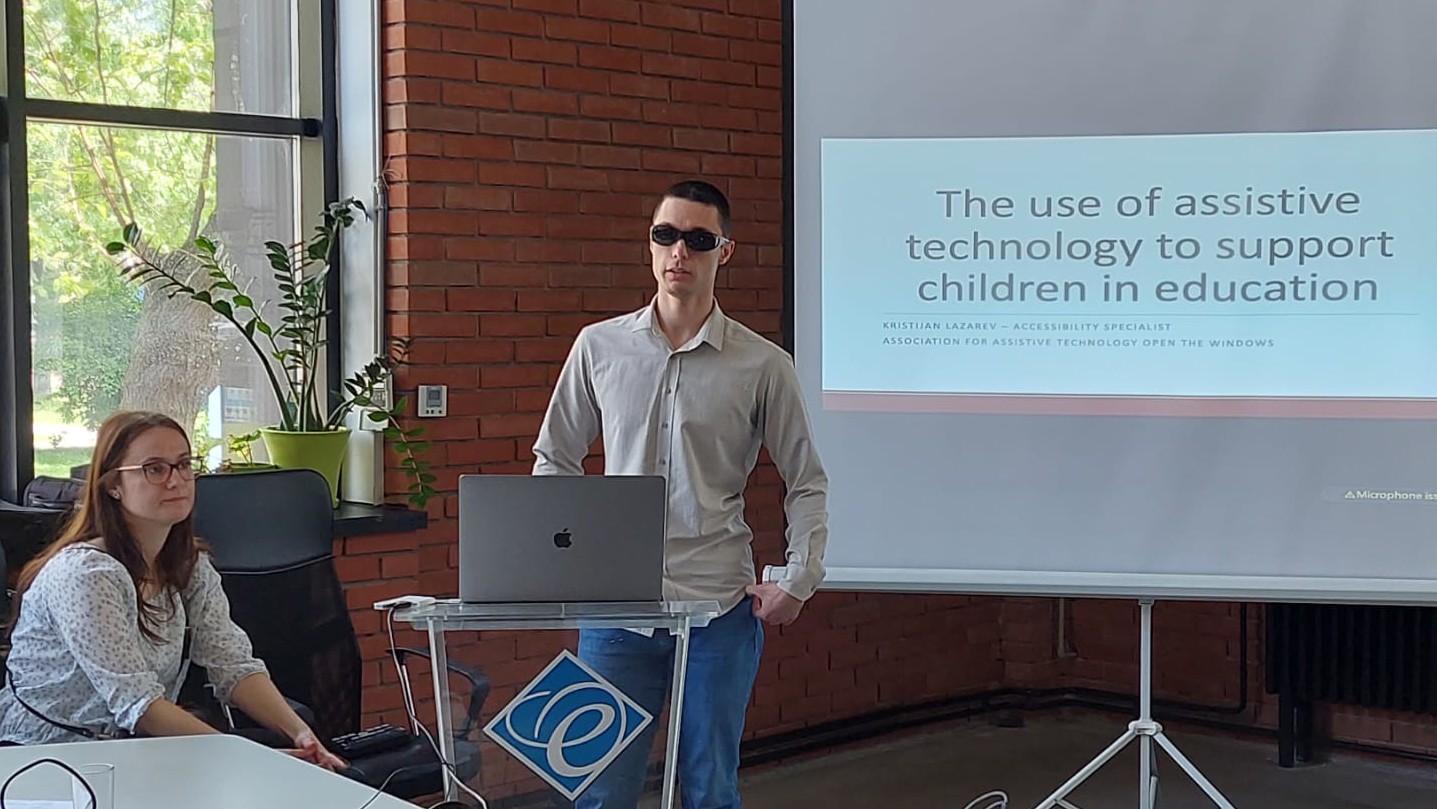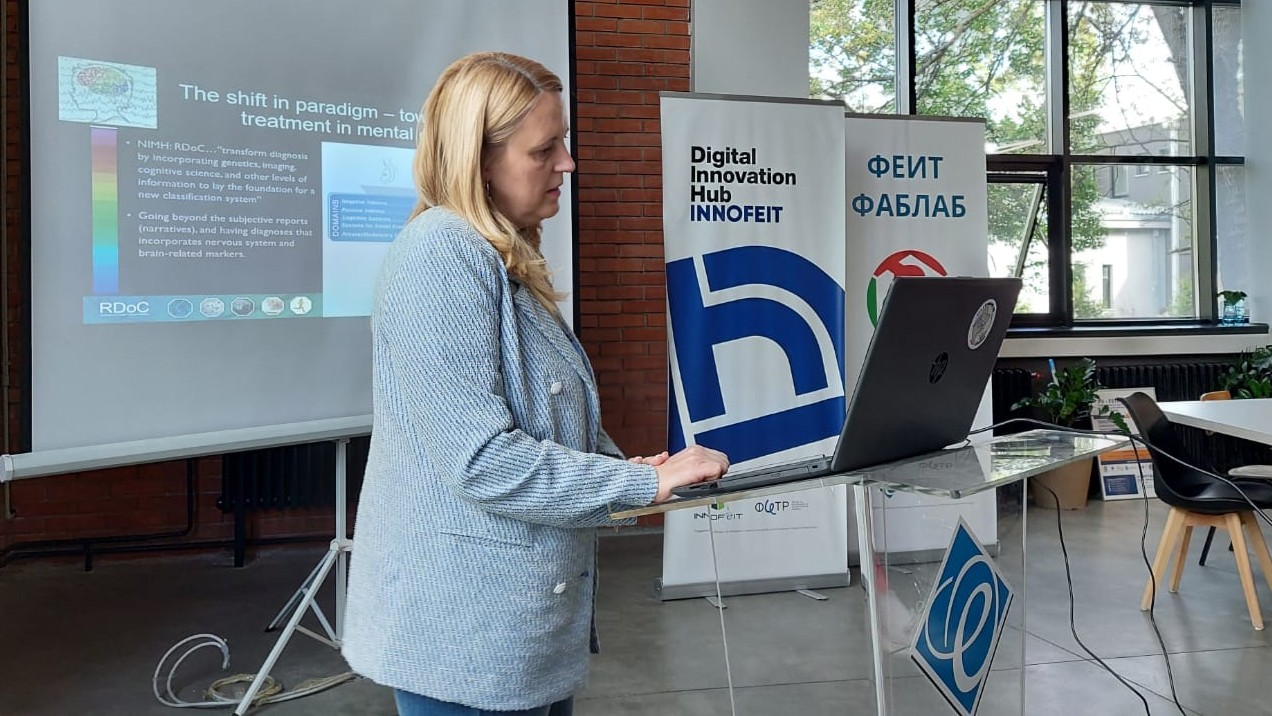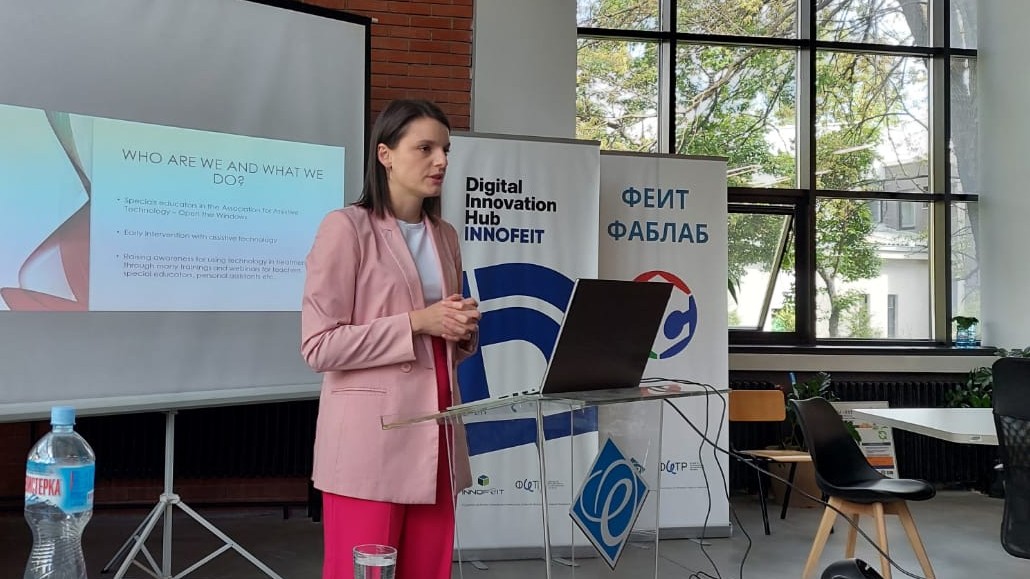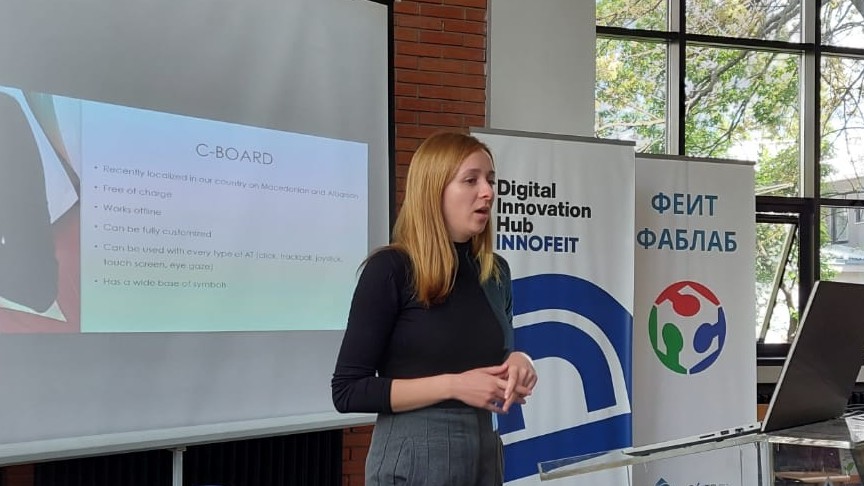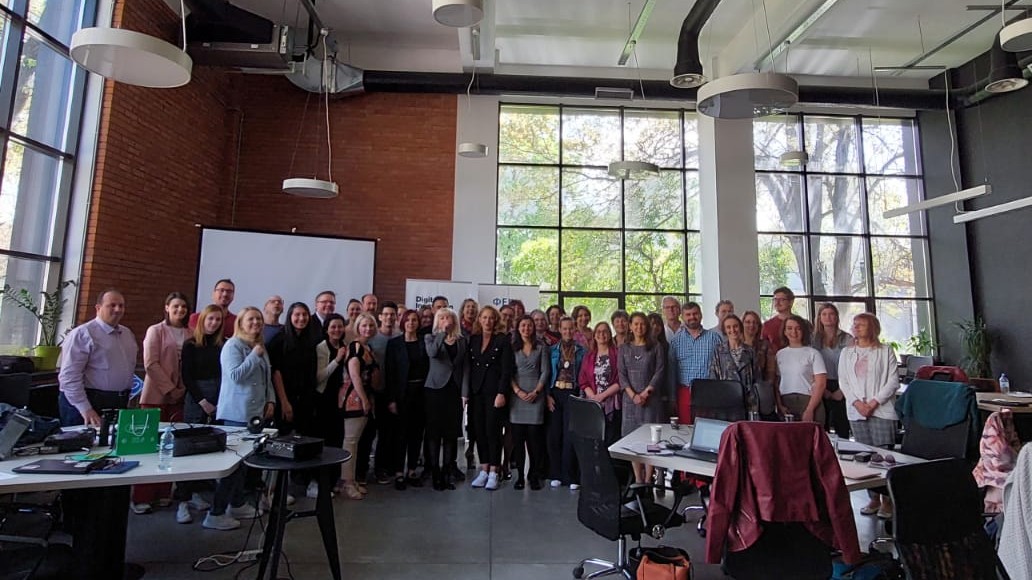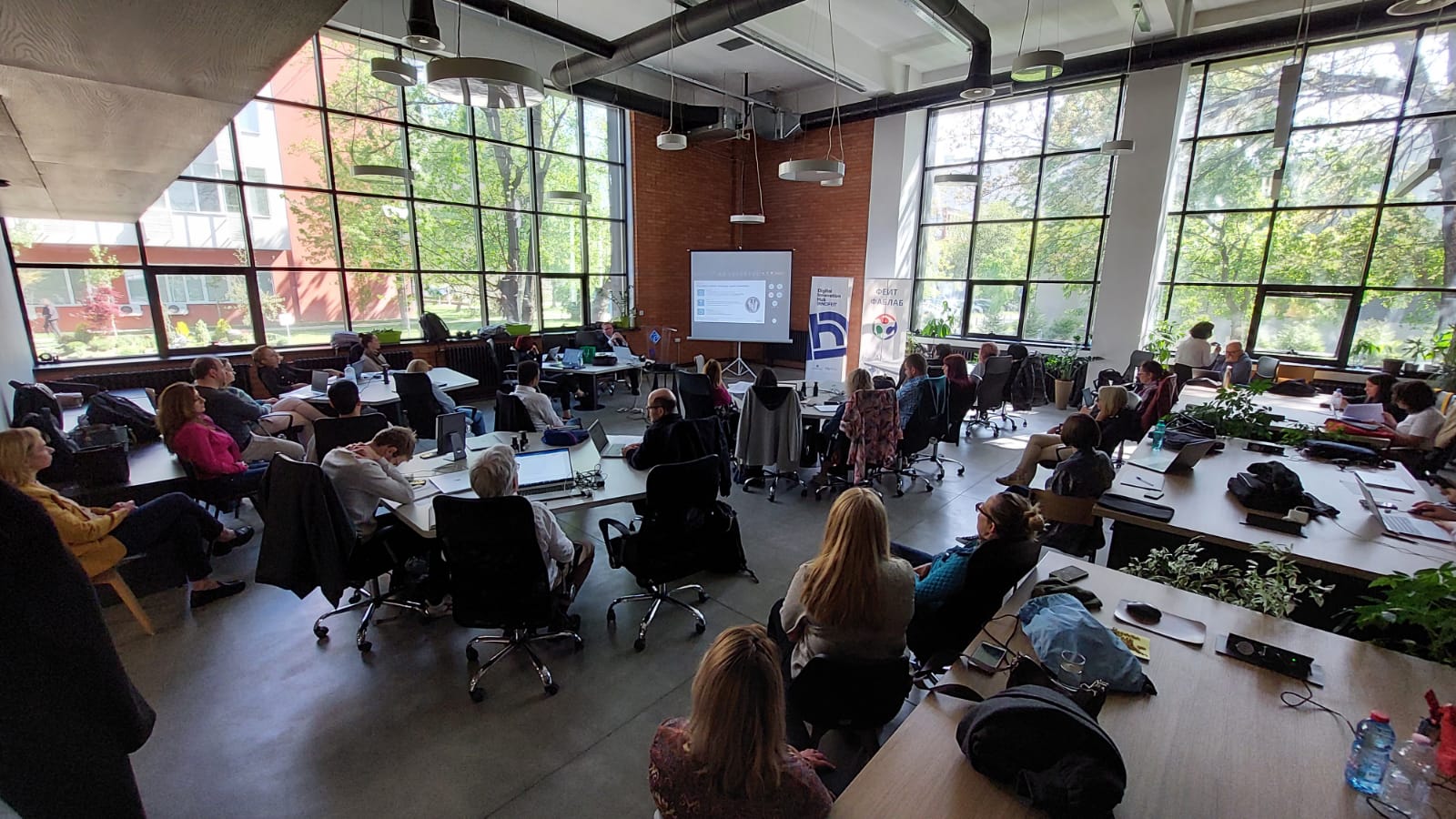A series of talks on assistive technology was held in INNOFEIT last week from renowned experts from the field from Europe and Macedonia. The talks were held within the scope of the COST Action “advancing Social Inclusion through Technology and Empowerment” a-STEP and FEEIT FabLab. a-STEP is an interdisciplinary, intersectoral pan-European and beyond, network which is working on enhancing social inclusion and empowerment of individuals with Autism Spectrum Disorder (ASD) and/or Intellectual Disability (ID). It boasts over 110 members from over 35 European countries, of which more than 40 attended the talks.
In her talk, Geraldine Leader, University of Galway, Ireland, the Action Chair of a-STEP, spoke about the use of Assistive Technology to promote social inclusion for people with disability. Tomasz Przybyła, from Adam Mickiewicz University, Poznań, Poland spoke about Brain training through non-invasive brain stimulation techniques in education and therapy. David Fazio, from Helix Opportunity, San Francisco, California, spoke about how to make content usable for people with cognitive and learning disabilities.
On the Macedonian side, Kristijan Lazarev, from the Association for assistive technology Open the Windows, spoke about the use of assistive technology to support children in education. Silvana Markovska Simoska, from the Macedonian Academy Sciences and Arts, spoke about QEEG and Neurofeedback for assessment and treatment of neurodevelopmental disorders. Danche Todorovska and Gordana Blagojevska, both from Open the Windows, gave a talk on the use of speech technology in the treatment of children with autism. Finally, Branislav Gerazov, from FEEIT, spoke about the work done by students at FEEIT in the field of assistive technology.
The talks were supported by the IEEE Section of N Macedonia through its departments: the Joint Department for Signal Processing and Engineering in Medicine and Biology (SP/EMB), the Joint Department for Electronic Components, Instrumentation and Measurements, Semiconductors circuits (ED/IM/SSC), as well as the IEEE Life Member Affinity Group (LM80077).
